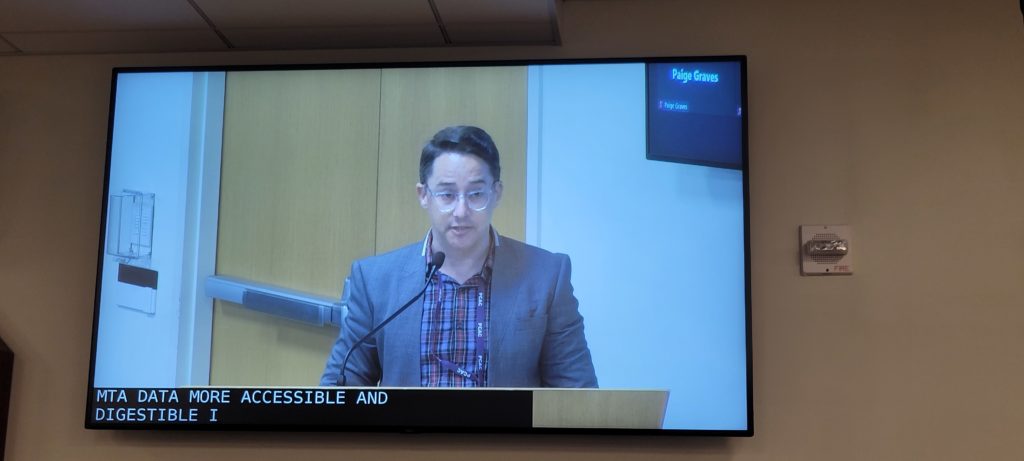By Bradley Brashears, PCAC Associate Director
July 25, 2022
Good afternoon! I’m Bradley Brashears, Associate Director of the Permanent Citizens Advisory Committee to the MTA (PCAC). Another summer, another season of downpours, tropical storms, and extreme heat. We all know what that means for our transit system: flooding, delays and service outages, and unsafe conditions for riders. We saw this last week and thank the MTA’s impressive crews for restoring service as soon as possible. Unfortunately, the worsening climate crisis means all of us must come together to protect our city, region, and transit from the elements.
We’re encouraged by the work you’ve already begun to make the system more resilient in the face of extreme weather. Last month’s board presentation identified many of the problem areas around the subway system, and know that your proposed solutions like raised entrances, covered grates, and other flood-proofing measures will help. But as the MTA IG pointed out in their report last week, preparing for the next Sandy or Ida will require extensive coordination and forewarning both within the MTA and with the City, to ensure that these tools can be deployed effectively.
Amending the capital program is an important step toward making the structural improvements including at the already-identified Dyckman Street trouble spot, which saw torrential flooding that resulted in closures and delays. It won’t be cheap, but the costs of delaying resiliency upgrades are far greater than proactively acting now. This also means investing in improvements that will help us face other weather events beyond hurricanes and rainstorms— including, but not limited to, extreme heat and fires we’re seeing around the globe Congestion pricing will continue to be one of our region’s greatest tools to fight the climate crisis, both by reducing GHG emissions caused by driving and by funding these critical improvements to our transit.
We know the MTA cannot face these threats alone. Continued work by the City to increase the capacity of the sewer system and to protect our waterfronts will be critical. We’re glad to hear that you’re coordinating with the agencies to identify and address vulnerable locations.
Transit is the antidote to climate change and investing in resiliency will be the antidote to the affects we’re already experiencing. Riders need resiliency to be a top priority to keep them moving through rain, snow, heat, or sun.
Thank you.
